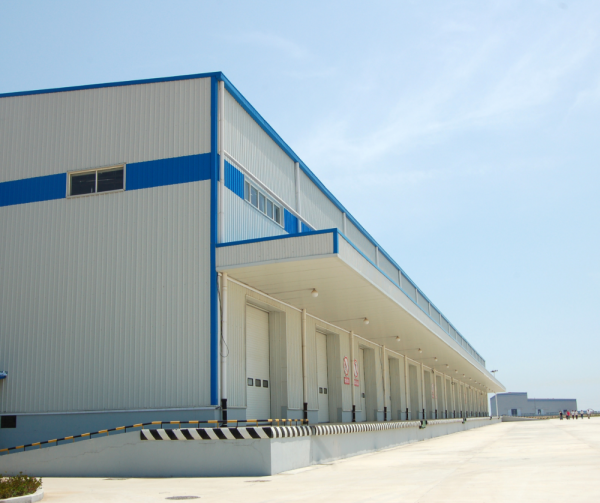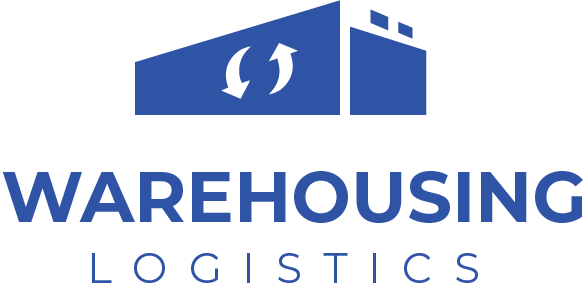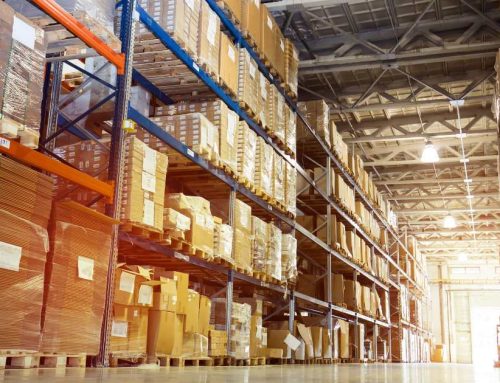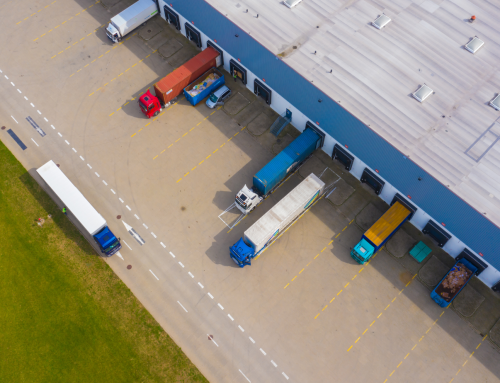A warehouse is a large storage facility for goods, raw materials, or other products. Products are temporarily held here before being sold or shipped elsewhere. There are many different types of warehouses for different stages of the supply chain and production process.
Every application requires certain storage conditions and some warehouse types can facilitate those needs better than others. Smaller or larger businesses may utilize storage differently for their needs.
Keep reading for an introduction to some of the most common types of warehouse facilities around the globe.
Here are 12 of the most common warehouse types around the world. From shared warehouse spaces like governmental warehouses and co-ops to privately owned spaces, there is flexibility in warehousing and great options for every storage application.

E-commerce Warehouse
E-commerce warehouses cater specifically to e-commerce businesses and their storage requirements. Any of the following warehouse types could suffice as an e-commerce warehouse, depending on the application, inventory type, and storage needs.
Distribution Centers
Distribution centers manage large amounts of inventory and quickly move it out to merchants and retailers. Products are not stored here for long, and warehouse flow is much faster than other warehouse types. Distribution centers typically handle finished goods rather than raw materials or parts.
Production Warehouse
Production or manufacturing warehouses store the raw goods and materials required for manufacturing operations. You will typically find production parts, components, semi-finished products, and other unprocessed materials here.
Fulfillment Centers
Fulfillment centers take products from shipments and prepare them for distribution. The pick, pack, and ship process is part of a fulfillment center’s duties.
Public Warehouse
Public warehouses are owned by governmental or third-party entities and are available to rent for business or personal use. This warehouse type is excellent for new or growing small businesses that only need to store inventory short-term. They are much more affordable compared to private warehouses.
Private Warehouse
Private warehouses are owned privately by businesses. A large upfront payment is necessary to purchase a warehouse and secure any essential management, maintenance, and upkeep services. Privately owning a warehouse is a much more significant investment than renting public warehousing. Owning a warehouse offers business owners total inventory management and storage system control.
Bonded Warehouse
Bonded warehouses serve as a safe holding ground for imported goods before customs duties are completed and paid for the products. Such warehouses are great for importers needing short-term or long-term storage for items that need approval and verification.
Smart Warehouse
Smart warehouses implement artificial intelligence (AI) like robots, drones, and more. These AI systems are programmed to weigh, pack, and transport raw materials within a warehouse facility. AI-implemented warehousing is a new technology that expedites warehouse processes for immediate order fulfillment.
Cooperative Warehouse
A cooperative warehouse is a warehouse space shared amongst multiple companies. Cooperative warehouses are ideal for small businesses that don’t need a larger storage space. Small productions often don’t manufacture enough stored goods to warrant an entire warehouse.
Companies with similar inventory types and storage environments are the best candidates for co-op warehousing. All co-op members benefit from reduced spending by splitting expenses between two or more parties.
Consolidated Warehouse
Consolidated warehouses collect small shipments from multiple suppliers, combine them into one large load, and ship it to a specific area. This process helps to save time and money by reducing the need for multiple shipments. A system like this appeals to smaller companies with less inventory to ship. It is an economical solution for less-than-truckload (LTL) orders.
Cold Storage Warehouse
A cold storage warehouse safely stores temperature-sensitive products. These climate-controlled warehouses ensure safe inventory storage and minimal losses. Facilities can implement cold storage technology throughout an entire warehouse or a small area depending on the number of stored goods in need of cooling.
Government Warehouse
Government warehouses are government-owned storage spaces available for rent by public or private businesses. There are pros and cons to government warehouse storage. Government warehouses offer higher security for stored goods than public warehouses but also hold the power to dispose of inventory in case of late rent payments.
Have Questions? Warehousing Logistics Can Help
Knowing what type of warehouse is best for your business is not always easy. Choosing the right warehouse facility is crucial for your company’s long-term success. New and growing businesses are especially volatile, and every decision can influence the company’s course.
Warehousing Logistics knows warehouse management and can help inform your business on the proper facility for your business plan. Contact us today with any questions or concerns.



